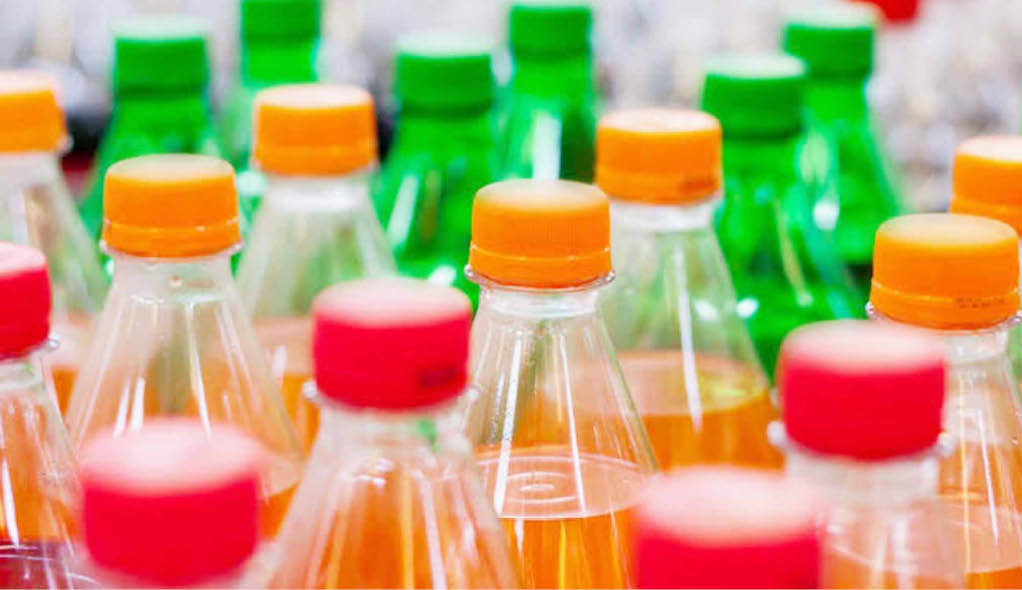Since Nigeria’s introduction of an excise tax on sugar-sweetened beverages (SSBs) in the country as captured in the Finance Act of 2021, public discourse has been marked by passionate discussions, interrogating the pros and cons of this policy.
While the N10 per litre excise tax on all non-alcoholic and sugar-sweetened carbonated drinks aims to bolster public health by curbing excessive consumption of sugar, a factor which contributes to the burden of non-communicable diseases such as obesity, diabetes, and hypertension, some commentators remain skeptical about its potential benefits.
One such perspective, articulated in an opinion article titled ‘Sugar Taxes in Nigeria: Unraveling the Myths, Realities and Complexities of Public Health’ published on October 31, 2023, in a leading online newspaper, Daily Post, not only contends that the focus on sugar taxes oversimplifies the complex issue of public health but also underscores the vital need for informed, evidence-based dialogues that enhance the pursuit of public health.
In the article, the writer acknowledges the SSB tax and the growing sensitization of Nigerians to the dangers associated with the excessive consumption of sugar-sweetened drinks. However, they raise concerns about what they describe as ‘‘unfortunate’’, the focus of SSBs as the ‘‘primary villains’’ in the battle against public health issues.
Israel Adesanya: The Rise and Fall (and Rise Again?) of MMA career
How Tinubu intervened in Wike/Fubara feud – Bauchi Gov
Furthermore, they state that “Proponents of sugar taxes assert that increasing levies on these drinks could be the way out in mitigating communicable diseases like obesity and diabetes’’.
To be clear, obesity and diabetes are NOT communicable diseases, which are typically infectious and can be transmitted between individuals through various means, such as contact with infected individuals or their bodily fluids, contaminated surfaces or objects, ingestion of contaminated food or water, or contact with disease vectors like mosquitoes, fleas, or mice.
It is also essential to state that while the writer’s concerns are personally valid, no public data or information ever identified SSBs as the ‘‘sole culprits’’ in the complex nature of public health issues and challenges. Nevertheless, the wealth of evidence linking excessive SSB consumption to a myriad of health problems and non-communicable diseases (NCDS) is robust and cannot be dismissed.
Non-communicable diseases are diseases that are not spread through infection or through other people but are typically caused by unhealthy behaviours. The Centre for Disease Control and Prevention observes NCDs, such as heart disease, stroke, cancer, chronic respiratory disease, and diabetes as the leading cause of death and disability worldwide, with its threat felt particularly in low and middle-income countries.
Indeed, SSBs are a significant source of sugars in many diets, contributing to overconsumption.
For instance, in “Get the Facts: Sugar-Sweetened Beverages and Consumption” the United States Centre for Disease Control and Prevention (CDC) states that “Frequently drinking sugar-sweetened beverages is associated with weight gain, obesity, type 2 diabetes, heart disease, kidney diseases, non-alcoholic liver disease, tooth decay and cavities, and gout, a type of arthritis.” It states further that “Limiting sugary drink intake can help individuals maintain a healthy weight and have healthy dietary patterns.”
In Nigeria, addressing excessive consumption of sugar and these beverages demands priority action, given that the country bears the highest diabetes prevalence in Africa, impacting over 12 million of its people. According to the World Health Organization (WHO), people who drink one to two cans a day or more of sugar-sweetened beverages regularly have a greater risk of developing Type 2 diabetes than people who rarely consume such drinks.
Yet public health experts posit that an estimated 38.6 million soft drinks are sold daily in Nigeria, making it the highest soft-drink-consuming nation in the world.
Indeed, the burden of SSB-related diseases such as obesity and diabetes has become a growing health problem in Nigeria, and the associated healthcare costs are increasing. Evidence from a recent systematic review and meta-analysis (Chukwuonye et al. 2022) shows that as of 2020, there were more than 21 million overweight and 12 million obese ‘persons in the Nigerian population aged 15 years or more, accounting for an age-adjusted prevalence of about 20% and 12% respectively’ (Adeloye et al. 2021).
Additionally, a systematic review and meta-analysis by Uloko et al. (2018) shows that at least 11.2 million persons in Nigeria are living with diabetes. In 2021, the cost of diabetes treatment per person rose to N300,000 from an average cost of N60,000 in 2011 and is expected to surpass N500,000 in 2030, with projections indicating it may exceed N1 million by 2045. Associated indirect costs of this health challenge include job absenteeism, loss of human capital, loss of quality life years, premature deaths, and lost earnings for caregivers (Paraje & Gomes 2022).
In the effort to improve public health by limiting sugar consumption, a number of public commentators have noted the benefits of balanced nutrition that incorporates the moderate intake of SSBs. For example, some critics suggest that “Sugar-sweetened beverages can be part of a balanced diet if their calorie intake is considered.”
However, it is essential to emphasize that SSBs offer no nutritive value and only contain empty calories that lead to weight gain, as confirmed by global public health experts, bodies and studies, including the World Health Organization, and the United States National Institutes of Health. Public health campaigns on SSBs therefore aim to raise awareness of the zero health benefits of consumption, and risks associated with its excessive intake while encouraging healthier choices.
Another concern in Nigeria’s SSB tax debate is whether the tax can effectively improve public health or might ‘‘inadvertently alter consumer behaviour, pushing them towards cheaper, less regulated alternatives, and potentially worsening public health concerns.’’
To address these concerns it is important to highlight that even though there is ample global evidence from various countries, showing positive health outcomes following taxation on SSBs, Nigeria must further invest in developing robust local database and evaluation systems that provide specific insights into the Nigerian context. This local data will enable policymakers to tailor interventions and adjustments to the tax based on the unique needs, preferences, and trends of the population.
Drawing from various global examples, including France, Mexico, and the United States, SSB taxes have, on the whole, when effectively implemented, engendered positive public health impacts by discouraging the excessive consumption of SSBs, leading to healthier choices among consumers. The tax also generates revenue utilized to fund and bolster public health systems and promotion initiatives.
Over 100 countries have already introduced SSB taxes, with Nigeria joining the rest of the world in July 2022 following the enforcement of the tax by the Nigerian Customs Service. Now more than ever, strengthening the effectiveness of the tax is crucial to realize its gains.
As both critics and advocates of the tax agree, tackling public health issues requires a comprehensive and multifaceted approach. To this end, the Nigerian government and all relevant stakeholders must work together to prioritize the effective implementation of the SSB tax and other pro-public health and nutritional policies.
This can be achieved through strategic actions such as monitoring compliance and enforcing penalties for non-compliance, launching public sensitization and campaigns that promote healthier food and beverage choices, and establishing robust data monitoring and evaluation systems to regularly assess the performance of health policies such as the SSB tax and reinforce expected outcomes.

 Join Daily Trust WhatsApp Community For Quick Access To News and Happenings Around You.
Join Daily Trust WhatsApp Community For Quick Access To News and Happenings Around You.


